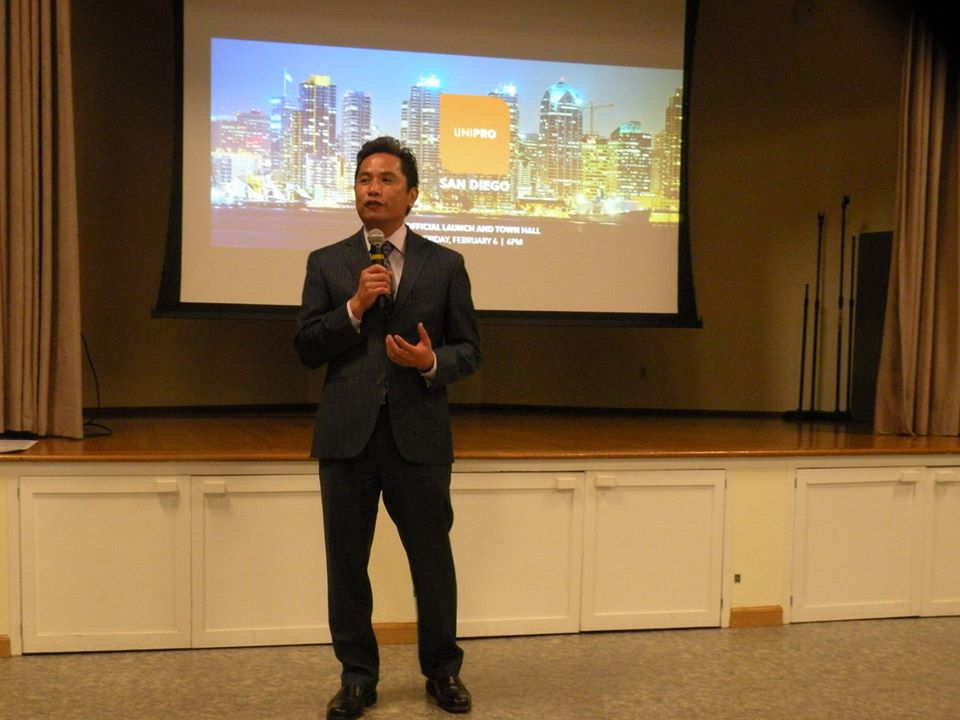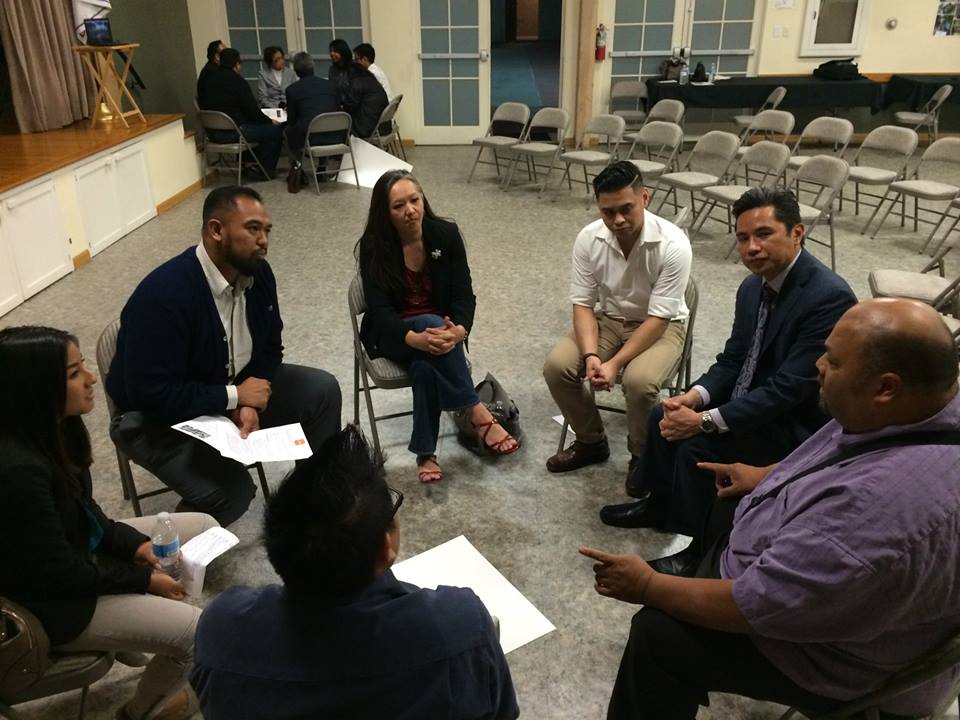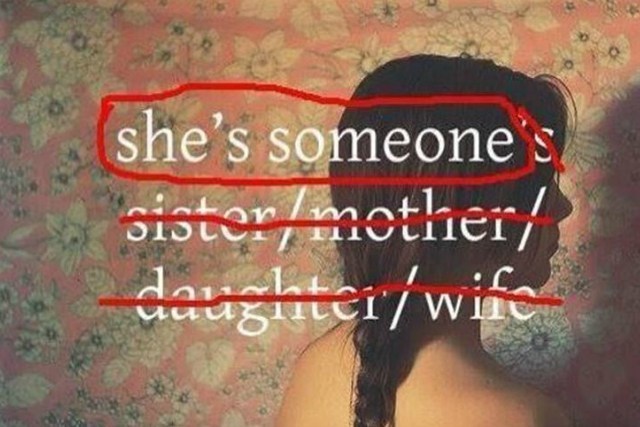New York City-Based UniPro Expands to the West Coast
Honorary Consul Audie de Castro : “This is the best time for UniPro to be created in San Diego.”
San Diego, CA – On Friday, February 6, the Pilipino American community of San Diego welcomed the arrival of the new San Diego chapter of the New York City-based Pilipino American Unity for Progress (UniPro). Over 50 attendees gathered at the United Domestic Workers of America (UDW) Community Hall for the chapter’s official launch and town hall meeting.
The event, co-sponsored by UDW, National Federation of Filipino American Associations (NaFFAA), and Silayan Filipina, opened with a keynote speech from the Philippine Honorary Consul for San Diego Audie de Castro. Echoing the goals of UniPro, he urged the audience to strive for unity and to promote the Pilipino American in San Diego. He stated, “In the past couple of years, our community has worked together better than ever. A major reason is that I have seen many of you reach out to all generations and to others with different political views. This is the best time for UniPro to be created in San Diego. I look forward to working with all of you.”

Hon. Consul Audie de Castro opens the UniPro San Diego launch.
The town hall dialogue followed the launch and consisted of small group discussions on the importance of communities to individuals, and what UniPro can do to serve the San Diego area. Groups discussed the questions, “What does community mean to you? What were your expectations of the Pilipino American community when you first joined? How do you perceive the Pilipino American community and what are your expectations now? Identify any needs of the community and potential solutions for those needs. Identify existing community organizations and how those organizations can work together to fulfill those needs.”
The discussion groups then reconvened and presented their responses to the entire audience. Some of the recurring themes included the needs for improved communication, greater visibility in the political sphere, and professional and personal development. Some of the possible solutions presented were the creation of a Pilipino community center, a database of Pilipino American organizations in San Diego, recurring town hall meetings, and leadership and mentorship programs in the community.

Attendees participate in small group discussions at the UniPro San Diego launch.
Founded in 2009, UniPro’s San Diego chapter is the organization’s first venture outside of New York City. “UniPro has always been interested in expanding beyond the metro-NY area. How could we work towards our vision of a unified and engaged Pilipino America without a presence in other major Pilipino American communities?” asks UniPro NY President Iris Zalun. “The answer came when we became involved in the Empowering Pilipino Youth through Collaboration (EPYC) conference, held in San Diego last August. Through EPYC, we met a group of passionate leaders whose values of collaboration, advocacy, and education aligned with ours. That team then approached us, expressing a need for UniPro in the San Diego community. Thus, UniPro San Diego was born.”
San Diego has been identified to have the second largest Pilipino American population in the nation. UniPro San Diego aims to identify and resolve the needs of the community while providing support, resources, and networks to organizations and individuals, most especially the youth. UniPro San Diego President Romyn Sabatchi adds, “It was humbling to be able to listen to the experiences and expectations of the Pilipino American community of new and seasoned members. Together we will be able to fulfill our needs with positive and effective solutions."
UniPro San Diego will host a Town Hall and Community Dialogue Follow-Up on May 15, 2015. For more information, read the story in the Filipino Press and contact sandiego@unipronow.org.
From left to right: UniPro San Diego Vice President Alicia Ricafrente, President Romyn Sabatchi, and Director of Community Relations Anthony DeGuzman (Photo Credit: Ernie Sasis)
###
Pilipino American Unity for Progress (UniPro) is a New York City-based 501(c)(3) nonprofit organization that envisions a unified and engaged Pilipino America. Founded in 2009, UniPro's mission is to engage Pilipino Americans through collaboration, advocacy and education. It seeks to transform Pilipino students & young professionals into community leaders through its various programs, which incorporate professional development, history, and policy through the lens of the Pilipino experience.The organization allows Pilipino Americans the opportunity to explore their place in the community in the hope of owning their niche. Ultimately, UniPro asks Pilipino Americans to critically answer, "How do you define Progress?"





